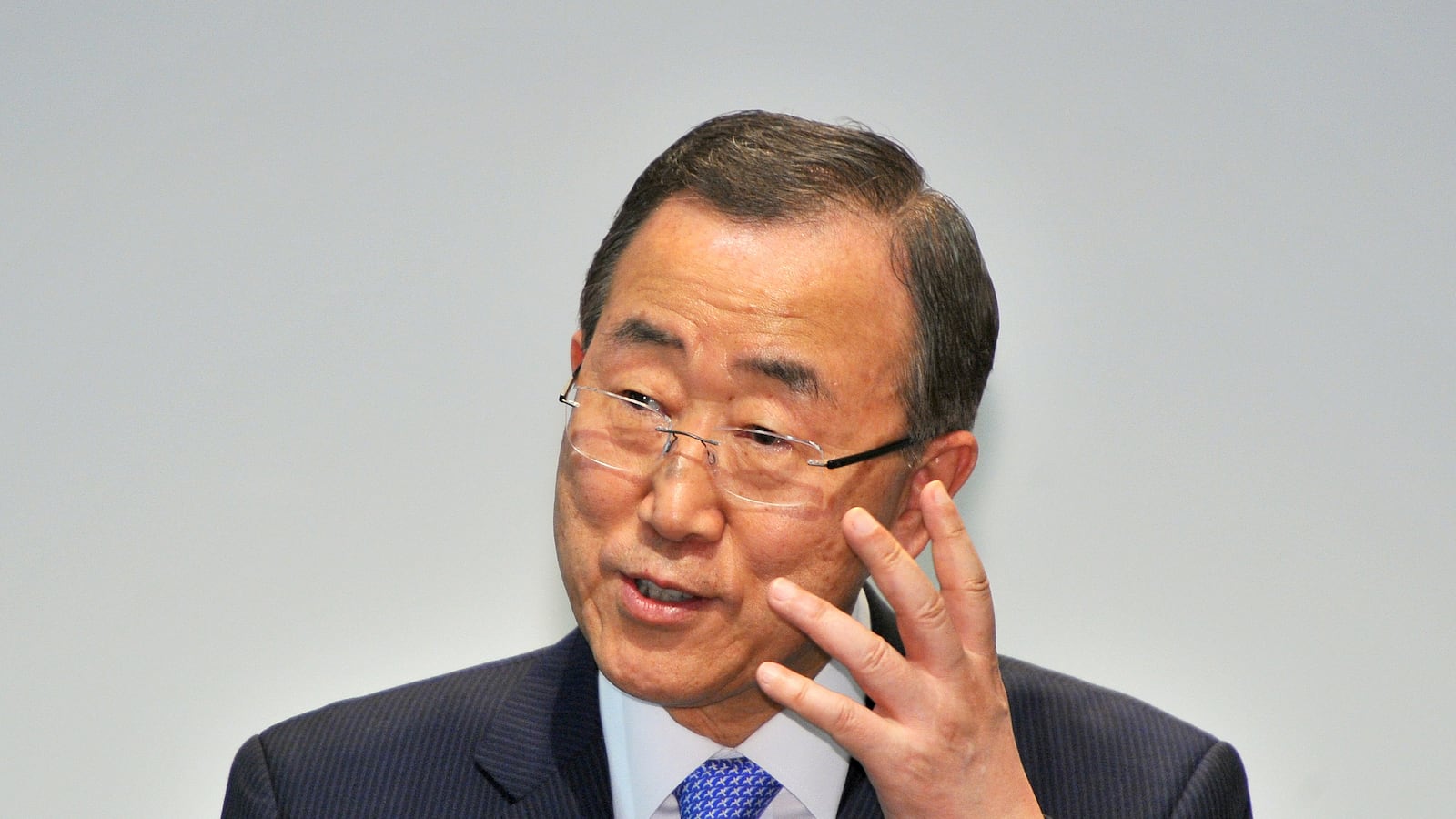The Israeli-Iranian rivalry is a highly competitive contest in incompetence. Most wounds are self-inflicted; most goals are own-goals. Israeli Prime Minister Benjamin Netanyahu reminded us of this again this week with his campaign to prevent the UN Secretary General Ban Ki-moon from attending the upcoming Non Aligned Movement (NAM) summit in Tehran.
NAM summits rarely get much press. In fact, as a seasoned journalist recently told me, few can remember when they even made the news. In the grander scheme of things, the future of humanity will not be decided at a NAM summit. But every once in a while, even the NAM gets its 15 minutes of fame. This time, it will be at the courtesy of Israel’s embattled Prime Minister.

Two weeks ago, Netanyahu launched a public campaign to persuade Ki-Moon not to go to Tehran. Attending the international summit in Tehran would be “a big mistake,” he told Ki-Moon. Later he issued a statement, telling the Secretary General that “you do not belong in Tehran.” A visit by the UN Secretary General would undermine the efforts to isolate Tehran, the Israeli cabinet figured.
And Washington agreed. At a time when Tehran’s isolation has increased significantly, a visit by the Secretary General could send the wrong signal.Problem is, the likelihood of Ban Ki-Moon agreeing not attending the NAM meeting was minimal to begin with. NAM countries represent a majority of the world’s population and given the tradition of UN Secretary General’s attending such meetings, it was almost inevitable that Ki Moon would go. With this campaign, Bibi was jeopardizing his own standing in pursuit of an almost impossible goal.But perhaps more importantly, Bibi’s folly in getting personally involved in the campaign to prevent Ki-Moon from going to Tehran presented the Iranian government with a PR coup. Bibi had significantly increased the importance and media interest in the NAM summit, and by Ki-Moon rejecting Netanyahu’s pressure and going to Tehran, the Iranian regime could declare victory and draw much more credit from the Secretary General’s visit than if Netanyahu had not bothered with summit in the first place.But when it comes to self-inflected wounds, Netanyahu has his match in President Mahmoud Ahmadinejad. While both Iran’s conflict with the West and the current nuclear quarrel precede Ahmadinejad’s emergence on the Iranian political scene, his reckless, venomous rhetoric—particularly against Israel—has made him politically toxic and lent significant support to Israel’s efforts to isolate Iran. Had it not been for Ahmadinejad’s never-ending ability to insult, it is not clear if the current international consensus against Iran could have formed. No wonder Israeli diplomats in the US expressed their desire for Ahmadinejad to be re-elected in 2009.Similarly, Ahmadinejad has in Iran been accused—only half-jokingly—of being an Israeli agent. The Israelis cold have found a better person to make their case for isolating Iran.The large number of own-goals between Israel and Iran can be partialy explained by both sides complete disregard for the sensitivities of the other's constituency. Ahmadinejad's Israel rhetoric is primarily targeting the Arab street, seeking to present Iran as a more potent opponent of Israel (and the US) than the Arab regimes themselves, and through such posturing, win some soft power and increase the wedge between the Arab populations and their regimes. This strategy was devised decades before the Arab spring and its success is questionable going forward.But while this strategy did produce some windfall for Iran in the Arab world in the past, it came at the expense of significant damage to Iran in the West, where venomous rhetoric against Israel, questioning of the Holocaust and echoing 9/11 conspiracies generate disgust. In turn, Iran reacted to Western revulsion with a anything from surprise to careless dismissals.Part of Netanyahu's gamble in pressuring Ki-Moon is to ensure that if the Secretary General disregards his first request and still travels to Iran, he will be more likely to accede to Netanyahu's second request: Once in Tehran, Ki-Moon must publicly repudiate the Iranian leadership for its posture on Israel.The hope then is to ensure that the take-away of the visit is not that the Seceratry General defied the pressure and travelled to Iran, but that he used the opportunity to publicly embarrass the Iranian leadership. But again, the disregard for the sensitivities of Iran's domestic audience fuels the likelihood of scoring only another own goal.Ki-Moon's visit is an opportunity for the Secretary General to directly address the Iranian people. While conveying widely held criticism of Iranian policies can be done, addressing that audience without considering their key concerns would be a mistake.As Dokhi Fassihian of United4Iran points out, Ki-Moon should focus on the Iranian government's continued human rights abuses and press Tehran to permit the United Nations Special Rapporteur on Human Rights in Iran to visit the country. Moreover, he should address the significant economic hardships the Iranian people have been forced to endure as a result of the Iranian government's incompetence and corruption combined with the blind, indiscriminate bilateral sanctions imposed on Iran by the US and its allies.Ki-Moon can only generate an internal discussion in Iran by firstly addressing the concerns of Iranians themselves and by signaling the Iranian people the solidarity of the international community for the repression and hardships they endure.If, however, Ki-Moon focuses on the Iranian government's rhetoric on Israel (while ignoring the open Israeli threats and speculation about bombing Iran which we’ve seen for years), the Iranian public will tune out. Not because they agree with Ahmadinejad's rhetoric, but because Israel isn't their main concern and because they are desperately seeking a sign that the international community has not entirely forgotten about them and their hardships.If Ki-Moon does not show that minimum amount of empathy and instead echoes what Iranians will likely view as Israeli and American talking points, then the regime will have an easy time dismissing his criticisms and avoid a conversation about the economy and human rights that would have been far more problematic for them.Bibi may be obsessed with Iran, but the obsession is not mutual. The last thing that is on the minds of the Iranian people is Bibi. And it lies in Israel's interest for it to remains so.






